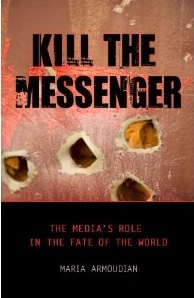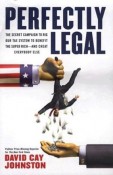Q&A: Steven Hill-10 Steps to Repair US Democracy
Written on March 20th, 2012 |
Aired 03/18/12
Among the things that most people agree are in big trouble these days are the European Union and democracy in the US. I will talk with today’s guest, STEVEN HILL, about both.
We have been hearing for two years about the trouble Europe is in. The debt crisis in Greece, Spain, Portugal, Ireland and beyond is challenging this federation of nations and economies to share the solutions to problems that have proven worst in individual countries who took greater risks than their more prudent neighbors. After Europe seemed to have fared better than the US in the early stages of this prolonged crash, what brought on this crisis? How close are they to solving it? How close are they to blowing it? What would Hill’s advice be? And what does it mean for the rest of the world and for the US in particular?
While the bad news of this Euro crisis makes headlines in the US, what has not made headlines is the good news contained in HILL’s 2010 book EUROPE’S PROMISE. I will check in with Hill about the current state of that promise.
Closer to home, HILL believes that America’s recent economic collapse was preceded by a longer-term political collapse. Even before the economic crisis, the US faced choice-less elections, out-of-control campaign spending,partisan polarization, a rigidly divided Congress, a filibuster-wild U.S. Senate, superficial debate, mindless media, a partisan Supreme Court, and paralysis in the face of new global challenges.
As the middle collapses and partisans take over, Americans’ frustration grows – witness the Tea Party and the 99%. In a brand new 2012 Election edition of his 2006 book, Steven Hill renews his 10 Steps to Repair American Democracy.
Q&A: Occupy Wall Street/Occupy LA
Written on November 4th, 2011 |
Aired 10/09/11
Politics and the media have for the most part shown themselves impotent, indifferent, or in cahoots when it comes to confronting and rolling back the takeover of the United States by the super-rich and the super-corporations.
Since the days of Clinton, we’ve been reminding ourselves of the words of FDR to progressives pressing for the New Deal — “Make me do it.” Envying the attention and power granted the tea party. Millions march all over Europe in response to austerity measures that make the people pay for the failures of the financial class. Millions march in the Arab Awakening when hunger, poverty, corruption, and autocracy prove too much to bear and social media connects and informs the people like never before. When will Americans take to the streets?
September 17th, a small group of demonstrators camped out in a downtown New York park and Occupy Wall Street was born. Occupy Los Angeles emerged a week ago, October 1st. Both are alive and well. As of Saturday the Occupy movement has spread to 1,016 cities in the US and abroad. There has been carping in the mainstream media about the movement’s lack of focus, lack of clear message, lack of specific platform or demands. The closest thing to a brand for the movement so far is the claim that, “We are the 99%”. I think this is a wonderful opening. It’s based on cold hard facts. It is inclusive. Even a tea partier knows they are part of the 99%. Inequality is problem #1 in this country. from which all else follows, including a corrupted political system that is not able to meet the challenges we face.
I don’t think anyone knows where this goes…At some level a lot of us have grown so resigned to the dominance of money in our society that I’m not sure too many have a plan how to get from here to where we need to get.
I think we each also have to invent the role we are going to play as this story unfolds.
I’ll be joined by representatives for both Occupy Wall Street — NELINI STAMP (Working Families Party) and MELANIE BUTLER (Code Pink) — and Occupy Los Angeles — LISA CLAPIER (media, Occupy LA) and SHARIF ABDULLAH (Commonway.org). I plan to ask them to tell their individual stories, report what’s happening around them and what they think it means.
http://www.adbusters.org/campaigns/occupywallstreet
Q&A: MARIA ARMOUDIAN, Journalist/Radio Host
Written on August 12th, 2011 |
Aired 08/08/11
KILL THE MESSENGER emerged from MARIA ARMOUDIAN's studies into the causes of genocide, war, peacemaking, democratization, and the protection of human rights and the environment, while she was working on her Ph.D. at the University of Southern California, as well as during her work as a broadcast journalist and public official. Looking across conflicts and policy successes and failures, she found that media (and media professionals) were among key factors in determining political outcomes, including matters of life and death.
Written in five parts, KILL THE MESSENGER shows how media fomented rage and genocide in Rwanda, the Holocaust and the Bosnian war; how they helped bring peace in the Northern Ireland Conflict and the war in Burundi; how media contributed to democratization and the protection of human rights in South Africa, Taiwan, Mexico, and Senegal, and how they aided both the destruction and rebuilding of democracy in Chile. In its final case study, Kill the Messenger explores the media's role in the fate of the world, as journalists disentangle the issue of climate change for the public.
The book's forward was written by Tom Hayden.
Q&A: DAVID CAY JOHNSTON Pulitzer Prize Winning Journalist, Author
Written on April 5th, 2011 |
Aired 04/03/11
Today one of our two major political parties - nationally and in state capitols -- is unwilling to consider raising taxes no matter what the circumstances. Though most of Washington's officials and media are hysterical about the deficit, and willing to hurt anyone in an effort to reduce it, both parties voted in December to extend tax breaks for the wealthiest Americans for two more years.
I last interviewed today's guest, Pulitzer Prize winning tax writer, DAVID CAY JOHNSTON in January 2009 on the day of Barack Obama's inauguration, We talked then about how we could make the most of the opportunity presented by the financial catastrophe. Did the bailouts make sense? and What could we do that would be smarter, more efficient, more effective - that might work?
DAVID CAY JOHNSTON worked as an investigative reporter for several newspapers. He was with the Los Angeles Times from 1976 to 1988, and at the New York Times from 1995-2008 where he won a Pulitzer Prize for his innovative coverage of our tax system He now teaches the tax, property and regulatory law of the ancient world at Syracuse University College of Law and Whitman School of Management and writes a column at tax.com. He is the author of two bestsellers, Perfectly Legal and Free Lunch. His next book, The Fine Print, will be published in 2011.
Q&A: JOHN NICHOLS, Author – Jews for Buchanan
Written on March 22nd, 2011 |
Aired 03/20/11
There are the repercussions of the Republican electoral victories in last fall's elections - not just in Washington but in statehouses across the country. Though they well know that they were swept into office due to unemployment and a weak economic recovery on the one hand, and voter ignorance and lack of memory on the other, the GOP in DC is acting like they have a mandate for gutting Planned Parenthood, Public Radio and Television, and the EPA. Even worse, in the states, they are seizing on budget shortfalls to try to crush public employee unions.
JOHN NICHOLS is a Washington correspondent for The Nation and associate editor of The Capital TImes in Madison, Wisconsin. He is the author of Jews for Buchanan, and co-author with Robert McChesney of Our Media Not Theirs: The Democratic Struggle Against Corporate Media.
